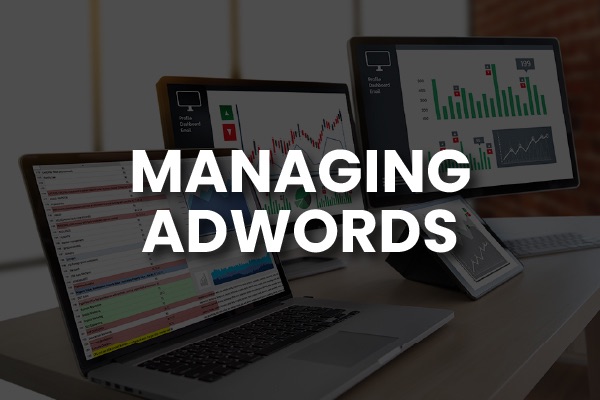
One of the best things Google did when they started the Pay Per Click revolution was they made it available to everyone. Any business owner if they chose could go in, create an AdWords account, set their geography, pick their keywords, and it’s off to the races. Of course, it’s also one of the worst things they did.
For the next few weeks, we will take a deep dive into how Google AdWords actually works and why your bid isn’t the most important thing to pay attention to.
Smartly Investing in Pay Per Click Advertising
Investing in AdWords or any investment in paid online media is just that. An investment. Investing in anything without clearly understanding the market is a terrific way to lose money. Can you imagine participating in an antique auction with no understanding of the value of what you were bidding on or even how the bidding system worked?
Interestingly, the antique auction is a particularly good metaphor, since that’s what Google’s Pay Per Click advertising boils down to, the world’s biggest auction.
This is not an article to talk about how Adwords works, if you need to know that, it’s a good idea to have a long talk with a paid search expert before spending a dime.
Properly managing your pay-per-click budgets requires you to pay close attention to some factors. Those factors include but are not limited to conversion rates, cost per conversion, average cost per click, average position for each keyword, click through rates for each ad and each keyword, and one metric that will help you understand how and why a particular keyword is working for you: quality score.
How are PPC ads placed on Google?
To understand why quality score is so important, first you have to understand how Google places pay-per-click ads and how they rank the ads. For most searches, Google places seven pay-per-click ads on the Search Engine Results Page (SERP.) Anyone can place an ad linking to any page on their website. Each ad is given a position relative to all other ads bidding for that keyword based on that ad’s AdRank for that term. AdRank is determined by two major factors — bid and quality score.
Bid is self-explanatory. You set your bid based on how much you are willing to pay for a click through to your website. The click comes from a user doing a particular keyword search from an IP address located in a particular geographic area. You might be willing to pay a lot to bring someone to your website to learn about a very profitable product or service, but you might not be willing to pay as much to bring someone to your website if they are looking for a product or service that doesn’t benefit your business very much.
For this reason, Google allows you to set your bids keyword by keyword if you so choose. An Adwords manager professionally managing your pay-per-click budgets would easily pay that much attention to detail. Small business owners trying to manage their AdWords themselves, however often make the mistake of setting all their bids at the AdGroup level. This makes the bid the same for a large group of keywords, or even worse at the account level, bidding the same for every keyword they want to show up for.
One of the two ways an AdWords manager can improve the average position an ad is appearing in for a particular keyword is raising the bid for that keyword.
The other half of your AdRank score is your quality score. If it doesn’t make sense to increase your bid for a search, you need to improve your quality score. This is much trickier to accomplish and is often one of the most misunderstood things about pay-per-click advertising.
Let’s first look at why Google assigns quality scores. Why not just put the highest bidder at the top of the list? That would make sense, wouldn’t it? Not if you think about why Google exists, and why people use Google.
People use Google because they trust that if they search for something on Google, they will quickly find a web page that will answer their questions and provide them with the information they are looking for. The better Google does with helping you find your answers as quickly and efficiently as possible, the more likely you are to continue using Google, and not look for your answers elsewhere.
Imagine if you will, Google ranked ads only according to bid. You do a search for “Hospital near me.” If Google was paying attention only to bid, there is no way the small local hospital could outbid a big insurance company who wanted to place an ad in front of someone looking for a hospital to tell them they should have better insurance, right? But you’re not looking for information on insurance companies, and if the first three listings you saw were for Insurance companies, next time you tried juggling chainsaws with a hangover and needed to get to a local hospital, maybe you’d look on Yelp instead.
Understanding what Google’s trying to accomplish is a great first step. Check back with us as we continue this series and learn about why you need to be paying so much attention to your quality score and what can be done to improve it.



